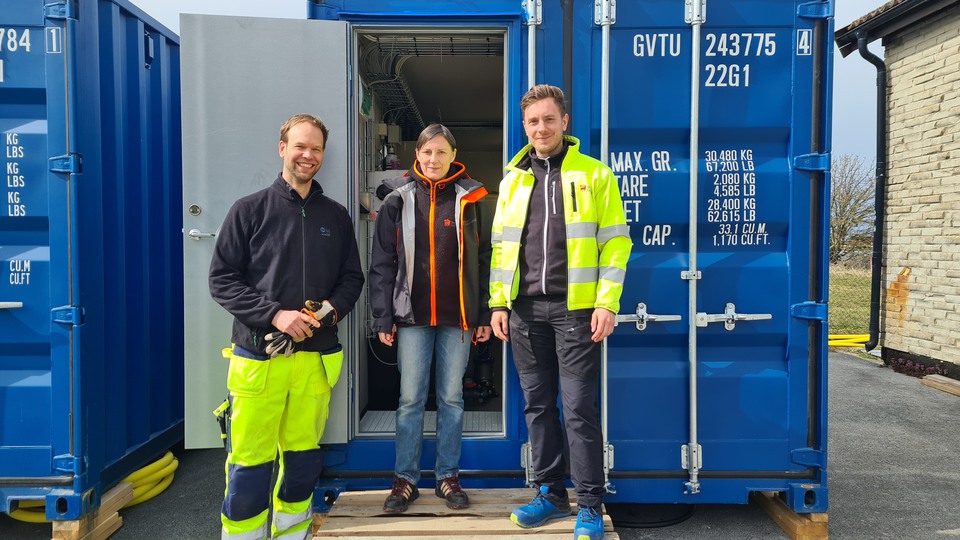
IVL expert Fredrik Hedman (left) visiting testbädd Storsudret on Gotland. Photo: IVL Swedish Research Environmental Institute.
Innovative water treatment of wastewater
A rising temperature and population accelerates the need for energy efficient and circular water treatment methods. The InnoRec project aims to develop a new technology for the recovery of nutrients from wastewater and to introduce energy-efficient treatment in Sweden.
Due to the production of methane gas, there are significant advantages to using anaerobic (without oxygen) technologies for water treatment. The challenge is that the technology requires high temperatures and is therefore usually used in countries with warmer climates such as Brazil. To enable the use of an anaerobic technology in regions with cold water, a test with membrane filters is now being carried out on the test bed Storsudret. The test bed on southern Gotland is part of an ongoing Vinnova project aimed at finding new methods for future water supply.
After membrane filtration, a water concentrate remains that is 5-10 times smaller in volume than the original. The concentrate contains a high proportion of nutrients, such as nitrogen and phosphorus, which are the main ingredients in artificial fertilizers. The concentration of wastewater in a low volume opens up for anaerobic water treatment, which produces fossil-free energy through methane gas production instead of consuming.
In Brazil, where the anaerobic technology is already in use, IVL will work with partners to introduce new technologies to recover nutrients from wastewater. The knowledge gained in Brazil can then be used in the Storsudret test bed, ultimately leading to an energy-efficient, circular wastewater treatment method in both cold and warm climates.
Project facts
- Development of an innovative technology for resource Recovery from anaerobic treatment of sewage - InnoRec
- Budget: 3 MSK
- Financier: Vinnova
- Partners: Sanepar, BoomaTech, SENAI-EQ, ENWA
- Period: 2021 - 2024
Contact
Want to know more about IVL's services and offers? Enter your email address and choose which area you want to know more about, and we will get back to you.
NOTE! For questions about vacancies and thesis work, go to the Careers
tab in the main menu.
